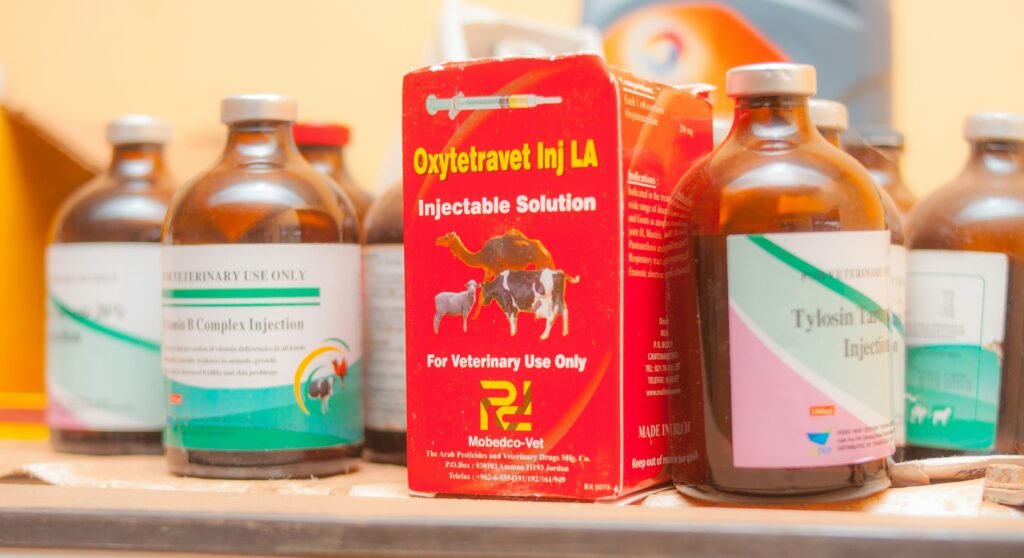Having a persistent dry cough can be incredibly frustrating and uncomfortable. It’s important to find a solution that effectively soothes and relieves the irritation, allowing you to go about your daily life without constant annoyance. In this article, we will explore various remedies and treatments that have proven to be effective in providing relief for a dry cough that just won’t seem to subside. So, if you’re tired of dealing with that stubborn cough, keep reading to discover the best cure for a dry cough that won’t go away.

Home remedies
When dealing with a persistent dry cough that just won’t go away, there are several home remedies that can provide relief. These remedies are easy to try and often utilize ingredients that you may already have in your pantry or kitchen. Let’s explore some of the most effective home remedies for a dry cough.
Hydration
One of the simplest and most important remedies for a dry cough is to stay hydrated. Drinking plenty of fluids can help soothe your throat and reduce irritation, making it easier for your body to expel mucus. Opt for warm liquids like herbal teas or warm water with honey, as they can provide extra comfort and relief.
Humidification
Dry air can exacerbate a dry cough, so increasing the humidity in your environment can be beneficial. Using a humidifier in your bedroom or living space can help add moisture to the air and prevent your throat from becoming dry and irritated. Alternatively, you can try inhaling steam from a bowl of hot water to provide temporary relief.
Honey
Honey has been used as a natural remedy for various ailments for centuries, and it can also help alleviate a dry cough. Its antibacterial properties can soothe your throat and reduce coughing. Simply mix a teaspoon of honey with warm water or herbal tea, and sip on it throughout the day. However, remember not to give honey to children under the age of one, as it may pose a risk of botulism.
Ginger tea
Ginger has long been praised for its medicinal properties, and ginger tea can provide relief for a dry cough. This warming and soothing beverage can help reduce inflammation in the throat and alleviate coughing. You can make ginger tea by boiling sliced ginger root in water for 10-15 minutes, then strain and sweeten with honey if desired.
Over-the-counter medications
If home remedies do not provide sufficient relief for your persistent dry cough, there are various over-the-counter medications available that can help alleviate your symptoms. These medications can help suppress coughing, loosen mucus, and relieve congestion.
Cough suppressants
Cough suppressants are medications that work by blocking the cough reflex in your brain. They can help reduce the frequency and intensity of your cough, allowing you to rest and recover. Common cough suppressants contain ingredients like dextromethorphan or codeine, and they are typically available in syrup or tablet form.
Expectorants
Expectorants are medications that help loosen and thin mucus, making it easier for your body to expel it. By loosening the mucus, expectorants can help relieve congestion and reduce the urge to cough. Guaifenesin is a common expectorant found in cough syrups and tablets, and it is usually taken with plenty of fluids.
Decongestants
If your dry cough is accompanied by nasal congestion, using a decongestant can provide relief. Decongestants work by reducing the swelling in your nasal passages, allowing you to breathe more easily and minimizing post-nasal drip. These medications are available in various forms, including nasal sprays, tablets, and syrups.
Prescription medications
In some cases, a dry cough may be more severe or persistent, requiring prescription medications to find relief. It is important to consult with a healthcare professional before starting any prescription medications, as they may have side effects or interact with other medications you are taking. Here are some common prescription medications used to treat a dry cough.
Antihistamines
Antihistamines are frequently prescribed to alleviate allergy-related coughs. They work by blocking the release of histamine, a chemical that triggers allergic reactions and can lead to coughing. Antihistamines are available in both sedating and non-sedating forms, and your healthcare provider will determine which type is most suitable for your condition.
Corticosteroids
Corticosteroids are powerful anti-inflammatory medications that can help reduce inflammation in the airways and alleviate coughing. They are often prescribed for individuals with asthma or chronic obstructive pulmonary disease (COPD) who experience a persistent cough. Corticosteroids can be taken orally, inhaled, or applied topically, depending on the specific condition being treated.
Bronchodilators
Bronchodilators are medications that help relax and widen the airways, making it easier to breathe and reducing coughing. They are commonly prescribed for individuals with conditions like asthma or chronic bronchitis. Bronchodilators can be taken in the form of inhalers, nebulizers, or oral medications, and they work by opening up the air passages and allowing for better airflow.
Lifestyle changes
Making certain lifestyle changes can also help manage a persistent dry cough and minimize its impact on your daily life. These changes involve avoiding irritants, adopting healthy habits, and taking care of your overall respiratory health. Incorporating these practices into your routine can make a significant difference in relieving your symptoms.
Avoiding irritants
Identifying and avoiding irritants that may trigger or worsen your cough is crucial for managing your symptoms. Common irritants include smoke, dust, pet dander, and strong odors. If possible, try to limit exposure to these irritants by ensuring proper ventilation in your home, using air purifiers, and taking precautions when you are in environments with known triggers.
Quitting smoking
If you are a smoker, quitting smoking is one of the most important steps you can take to improve your respiratory health. Smoking not only irritates the airways but also damages lung tissue, making you more susceptible to a persistent dry cough. Speak with your healthcare professional about smoking cessation strategies and resources available to you.
Staying hydrated
Maintaining proper hydration is essential for overall respiratory health, as it helps keep your airways moist and reduces irritation. Ensure that you drink an adequate amount of water throughout the day and try to incorporate hydrating foods into your diet, such as fruits and vegetables with high water content. Additionally, avoiding excessive caffeine and alcohol consumption can help prevent dehydration.

Steam inhalation
Steam inhalation is a simple and effective way to relieve a dry cough and soothe irritated airways. When you inhale steam, it moisturizes the lining of your throat and can help loosen mucus, making it easier to expel. There are several methods you can use to incorporate steam inhalation into your cough relief routine.
Using a steam inhaler
Steam inhalers are specialized devices that generate steam for inhalation. They often come with a mask or a mouthpiece to ensure that the steam is directed towards your airways. Simply fill the inhaler with water, switch it on, and breathe in the warm steam for several minutes. Be cautious not to get too close to avoid any burns.
Taking a hot shower
If you don’t have a steam inhaler, taking a hot shower can also provide similar benefits. The steam generated in the bathroom helps create a moist environment, which can help alleviate throat irritation and reduce coughing. Stand in the shower and inhale the warm, steamy air for a few minutes to experience relief.
Herbal remedies
Herbal remedies have been used for centuries to alleviate various health conditions, including coughs. When it comes to a dry cough, certain herbs have properties that can help soothe your throat and reduce coughing. Let’s explore some commonly used herbal remedies for a dry cough.
Eucalyptus oil
Eucalyptus oil has natural expectorant properties, making it an excellent choice for relieving a dry cough. You can add a few drops of eucalyptus oil to a bowl of hot water, cover your head with a towel, and inhale the steam. Alternatively, you can find eucalyptus-based cough drops or syrups at your local pharmacy.
Peppermint tea
Peppermint tea is not only delicious but also has soothing properties that can relieve a dry cough. The menthol in peppermint helps to relax the muscles in the throat, reducing the urge to cough. Brew a cup of peppermint tea using dried leaves or store-bought tea bags, and drink it warm to experience its soothing effects.
Marshmallow root
Marshmallow root has been used for centuries to treat respiratory conditions, thanks to its calming and soothing properties. It forms a slippery coating when mixed with water and can help alleviate irritation in the throat, reducing coughing. You can brew marshmallow root tea by steeping the dried root in hot water for several minutes, then strain and drink it warm.

Vapor rubs
Vapor rubs are topical treatments that can provide relief for a dry cough by soothing throat irritation and reducing congestion. They are typically applied to the chest or throat area, allowing the vapors to be inhaled and provide a cooling sensation. There are different types of vapor rubs available on the market, each with its unique benefits.
Camphor-based rubs
Camphor-based vapor rubs have been popular for ages and are known for their cooling effect on the skin. The camphor itself helps to calm coughing and congestion, providing relief to those suffering from a dry cough. When applying a camphor-based vapor rub, remember to follow the product instructions and avoid using it on children under the age of two.
Eucalyptus-based rubs
Eucalyptus-based vapor rubs are another excellent option for relieving a dry cough. The signature scent of eucalyptus can help open up the airways and promote easier breathing. Apply the rub to your chest and throat area before bed, allowing the vapors to work their magic overnight. As with any product, be sure to read and follow the instructions for safe usage.
Saltwater gargles
Saltwater gargles have long been used as a simple and effective remedy for sore throats and coughs. The salt helps reduce inflammation and draw out excess fluids, providing relief to your irritated throat. To make a saltwater gargle, simply mix half a teaspoon of salt with a cup of warm water. Gargle the mixture for 30 seconds, then spit it out. Repeat several times a day for best results.
Mixing salt with warm water
It is important not to swallow the saltwater gargle, as it can upset your electrolyte balance. Instead, make sure to spit it out after gargling. You can adjust the salt concentration based on your preference, but be mindful not to use excessive amounts of salt, as it may cause discomfort.

Professional treatments
If your dry cough persists despite trying various home remedies and over-the-counter medications, it may be time to seek professional treatment. Healthcare professionals have a range of treatments available that can help manage and alleviate your symptoms effectively. Here are some professional treatments that may be recommended.
Allergy shots
If your dry cough is allergy-related and persists despite other treatments, your healthcare provider may suggest allergy shots. Also known as immunotherapy, this treatment involves regular injections of small amounts of allergens over time. The goal is to desensitize your immune system to the allergen, reducing your body’s overreaction and minimizing your coughing symptoms.
Immunotherapy
Immunotherapy, mentioned previously in the context of allergy shots, can also be administered orally or via sublingual drops. These forms of immunotherapy are suitable for individuals who may not be comfortable with injections but still want to pursue treatment for their cough. Discuss with your healthcare provider to determine the most suitable method for you.
Respiratory therapy
For individuals with chronic respiratory conditions, such as asthma or COPD, respiratory therapy may be necessary to manage a persistent dry cough. Respiratory therapists are healthcare professionals who specialize in assessing and treating respiratory disorders. They can provide personalized treatment plans, including breathing exercises, inhaler techniques, and other therapies to help alleviate your cough and improve your overall respiratory health.
When to see a doctor
While home remedies and over-the-counter medications can often provide relief for a dry cough, there are instances when it is important to seek medical attention. If you experience any of the following symptoms, it is recommended to see a doctor:
Symptoms lasting more than 2 weeks
If your dry cough persists for more than two weeks despite trying various remedies, it is important to consult with a healthcare professional. Prolonged coughing may indicate an underlying condition that requires further investigation and treatment.
Difficulty breathing
If your dry cough is accompanied by difficulty breathing, it is essential to seek immediate medical attention. This could be a sign of a more severe respiratory issue that requires prompt evaluation and management.
Chest pain
If you experience chest pain along with your dry cough, it is crucial to consult with a healthcare professional. Chest pain can be a symptom of various conditions, including respiratory infections or even heart-related issues. Providing detailed information about when the pain occurs, its intensity, and any other associated symptoms to your doctor will help guide the appropriate course of action.
In conclusion, dealing with a persistent dry cough can be frustrating and uncomfortable. However, by incorporating these home remedies, over-the-counter medications, lifestyle changes, and professional treatments, you can find relief and manage your symptoms effectively. Remember to consult with a healthcare professional if your cough persists or is accompanied by severe symptoms to ensure a proper evaluation and treatment plan.



